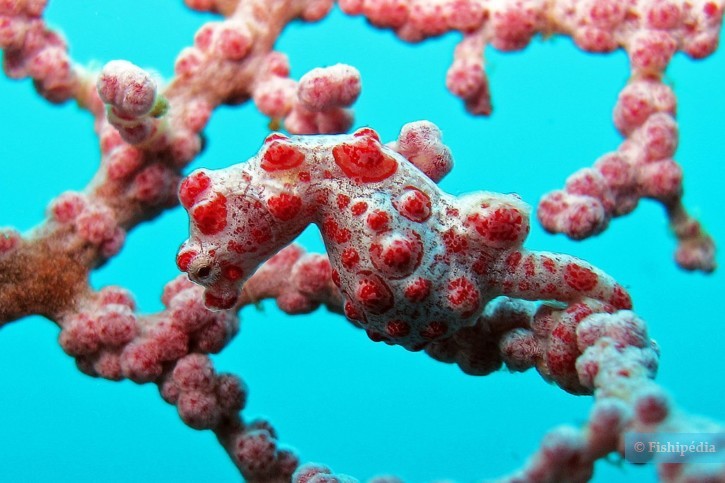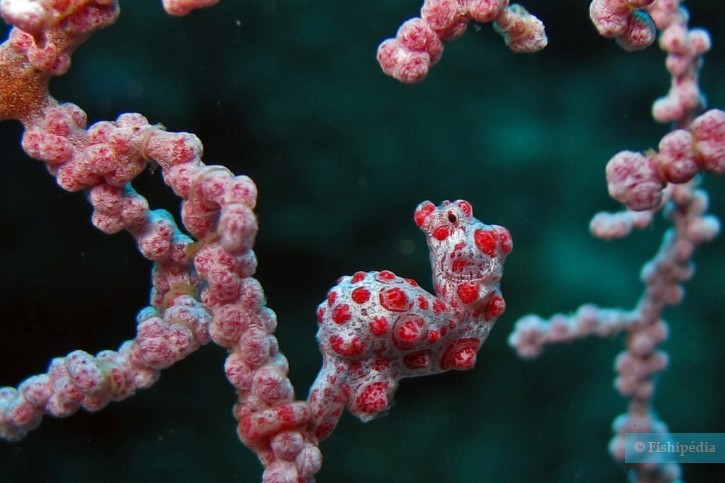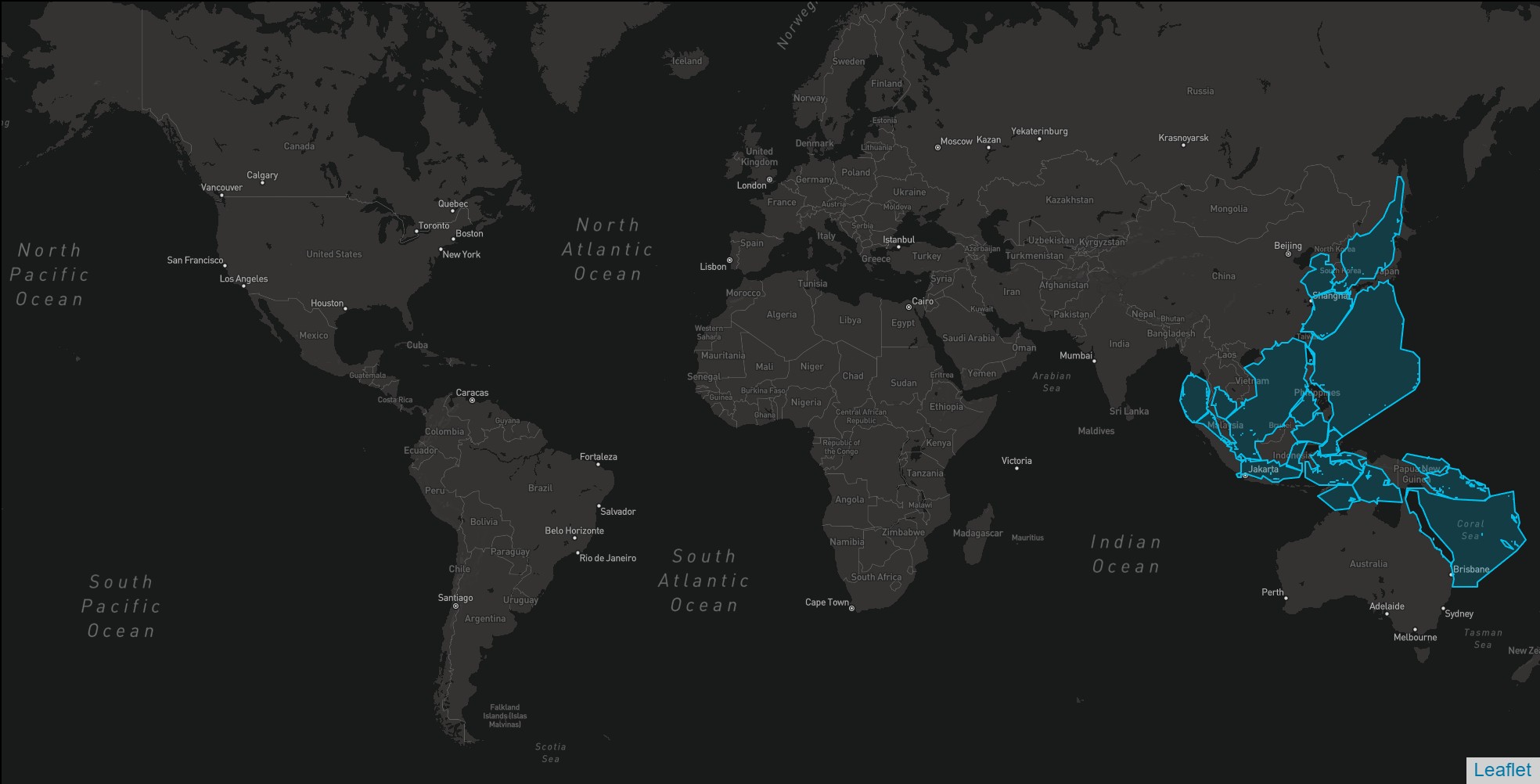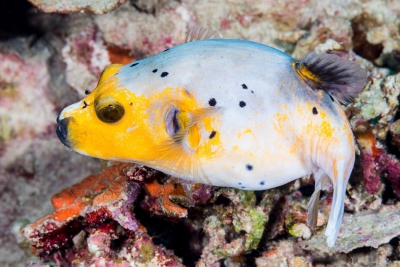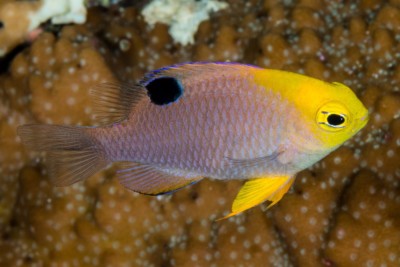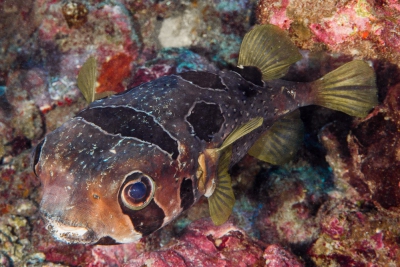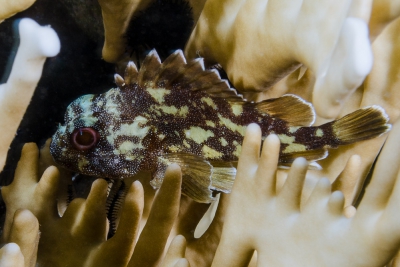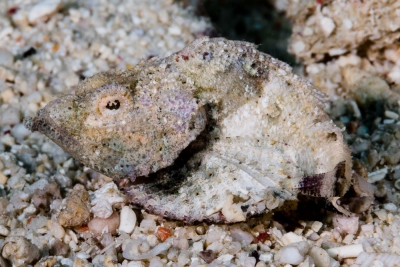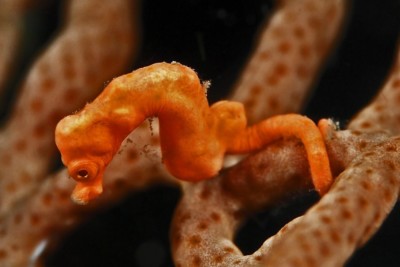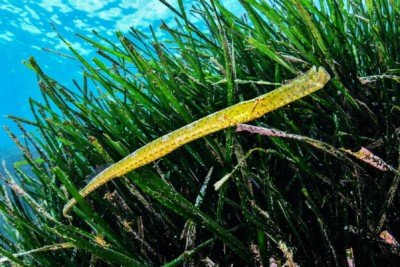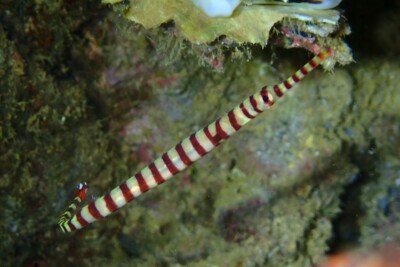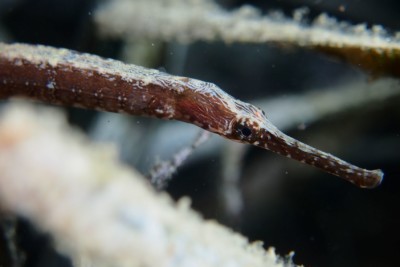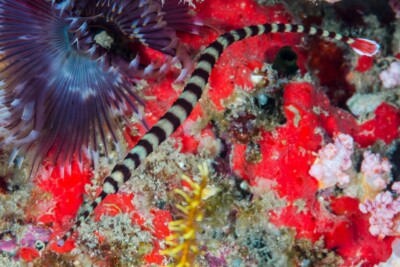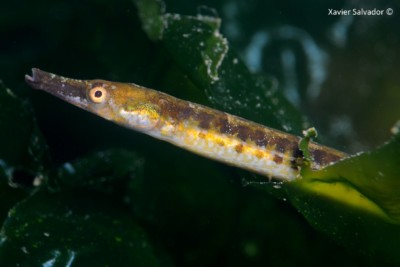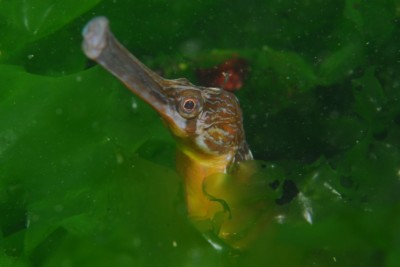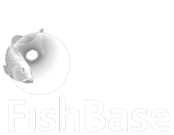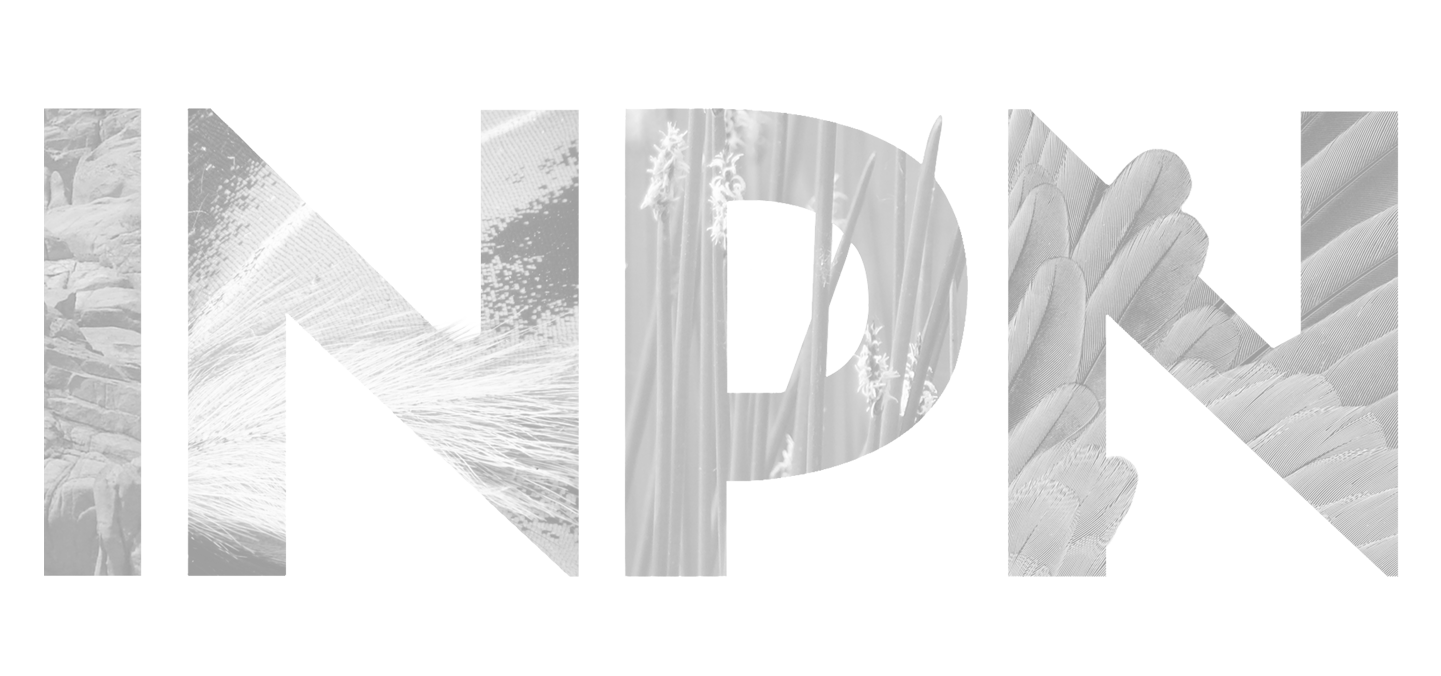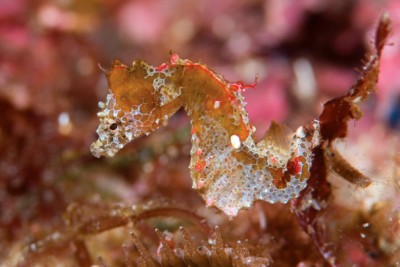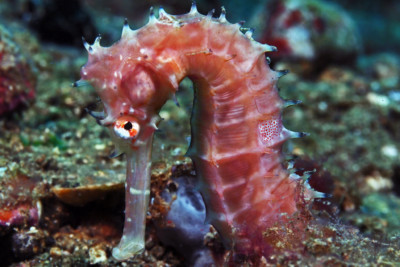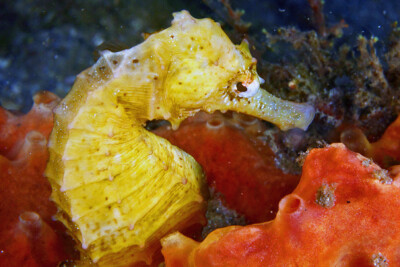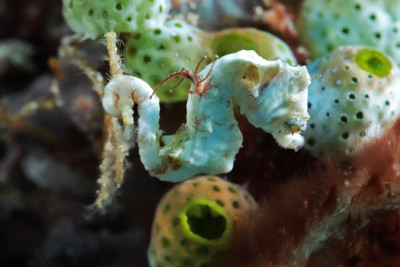bargibant's seahorse
| Family | Syngnathidae |
|---|---|
| Genus | Hippocampus |
| IUCN category (World) | LC |
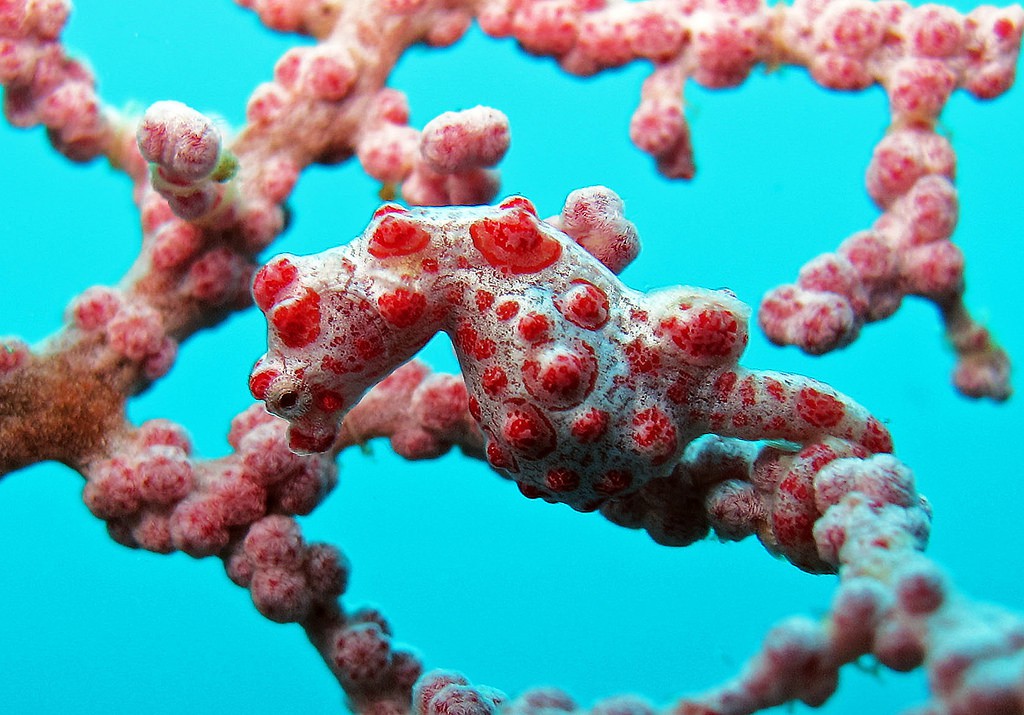

Introduction
Hippocampus bargibanti, commonly known as bargibant's seahorse, is a little salt water fish.
This sheet is currently being prepared. The texts currently proposed come from our data model or are being drafted. To request priority for this content, you can write to us HERE.
Who is it?
Morphology
-
Type
-
Average size1 cm
-
Maximum size2 cm
-
Mimicrycoral
-
Patterncircle pattern
-
Type
-
Average size1 cm
-
Maximum size2 cm
-
Mimicrycoral
-
Patterncircle pattern
How to recognize This fish ?
The bargibant's seahorse measures between 1 and 2 cm. Given its small size, this species is commonly referred to as a "dwarf" animal. This fish is bicolore with a predominantly rose and blanc body. The also has rose circle pattern.
Behaviour & Life cycle
-
dietcarnivorous
-
Sociabilityliving as a couple or alone
-
territorialNo
-
Way of livingdiurnal
The bargibant's seahorse is a fish living as a couple or alone naturally found in the vegetation. This species is carnivorous . Measuring only a few centimeters, this small species tends to be discreet and hide in the presence of larger neighbors.
n general, this species does not care much about other animals crossing its path.
Reproduction
-
Reproductionovovivipare
The bargibant's seahorse is a fish ovovivipare.
Harmless species
This species does not represent any particular threats to humans when encountered in its natural environment.
Origin and distribution
Conservation status of populations (IUCN)
What is its habitat?
Natural environment characteristics
-
Temperature24 - 28 °C
-
Depth16 - 40 m
-
FlowSlow and Stagnant
Biotope presentation
The bargibant's seahorse is most often found at a depth between 16m and 40m. However, it is not impossible to find this species at other depths.
Species of the same biotope
Fishkeeping
Not recommended
We do not recommend keeping this species in an aquarium. It has unpredictable needs which, if not met, generate significant stress, potentially leading to a shorter life expectancy, an interruption of its growth or the development of pathogens.
To go further
Sources & Contributions
Participation & Validation
The Fishipedia team and specialist contributors are committed to providing high-quality content. However, although the information comes from scientific sources or testimonials from specialists, the cards may contain inaccuracies.

Benoit Chartrer
Translation
Translation done with the valuable contribution of our translators, who make this information available to a wider audience. We sincerely thank them for their commitment.
Scientific partners
Tags
Species of the same family
Same genus
Species of the same biotope
